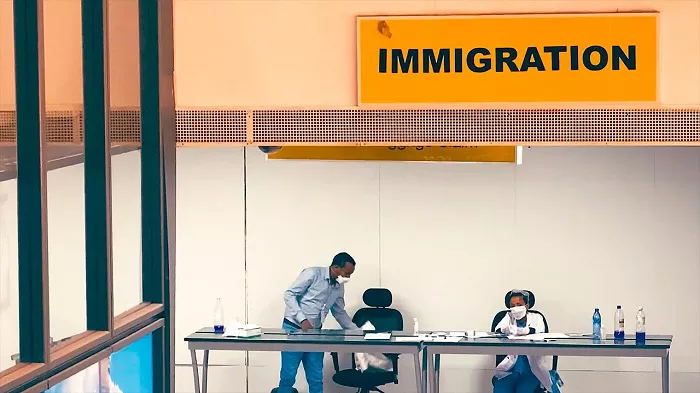LONDON — General Lương Tam Quang, Politburo member and Minister of Public Security of Vietnam, attended the Organised Immigration Summit in London on Monday, where he delivered a significant address on combating human trafficking, cybercrime, and the financial networks supporting criminal groups.
During his participation, Quang engaged in sessions discussing the impact of emerging technologies like artificial intelligence (AI), cloud computing, and big data on cyberspace and their implications for national security. He pointed out that while these advancements offer undeniable benefits, they also present new risks, particularly when exploited by criminal organizations.
Cybercrime and Human Trafficking
In Vietnam, criminals have increasingly turned to social media and online platforms to deceive citizens, luring them with promises of lucrative overseas work. However, upon arrival, many victims are coerced into forced labor, such as working in casinos or participating in online fraud schemes. This has raised concerns about the growing role of cyberspace in facilitating illegal immigration and human trafficking.
Minister Quang stressed Vietnam’s commitment to addressing these issues through comprehensive legal frameworks, action plans, and enforcement measures aimed at combatting human trafficking and illegal immigration. The country has also ramped up efforts to raise public awareness, disseminating information about the risks of illegal overseas employment and providing warnings about common tactics used by traffickers.
Strengthening International Cooperation
Quang emphasized that tackling transnational cybercrime, including human trafficking, requires robust international cooperation based on the principles of the United Nations Charter and respect for national sovereignty. He called for the revision of international agreements to provide a stronger legal foundation for fighting these crimes. This includes improving coordination among law enforcement agencies, sharing information more effectively, and disrupting the financial networks that fund such criminal activities.
The Minister also urged countries to take a proactive approach by identifying and addressing the root causes, trends, and locations of cybercrime, allowing for early preventive measures. He suggested that law enforcement agencies strengthen their management of immigration, oversight of foreign residents, and security measures for foreign nationals within their jurisdictions.
Capacity Building and Knowledge Sharing
To bolster global efforts, Quang proposed that countries with experience in combating cybercrime and human trafficking offer support in training, capacity-building, and organizing workshops to share best practices. Additionally, he urged nations to provide modern equipment and specialized tools to help bridge gaps in enforcement capabilities, ensuring timely and effective action against cybercrime and human trafficking networks.
The summit marked an important step in enhancing international collaboration to address the complex and evolving threats posed by organised immigration crime and cybercriminal activities.
Related topics:
- Trump’s Aid Freeze Strands Afghan Visa Holders in Albania
- Trump’s Birthright Citizenship Policy Concerns H-1B Visa Workers
- Dhaka Urges Canada to Speed Up Student Visa Processing


